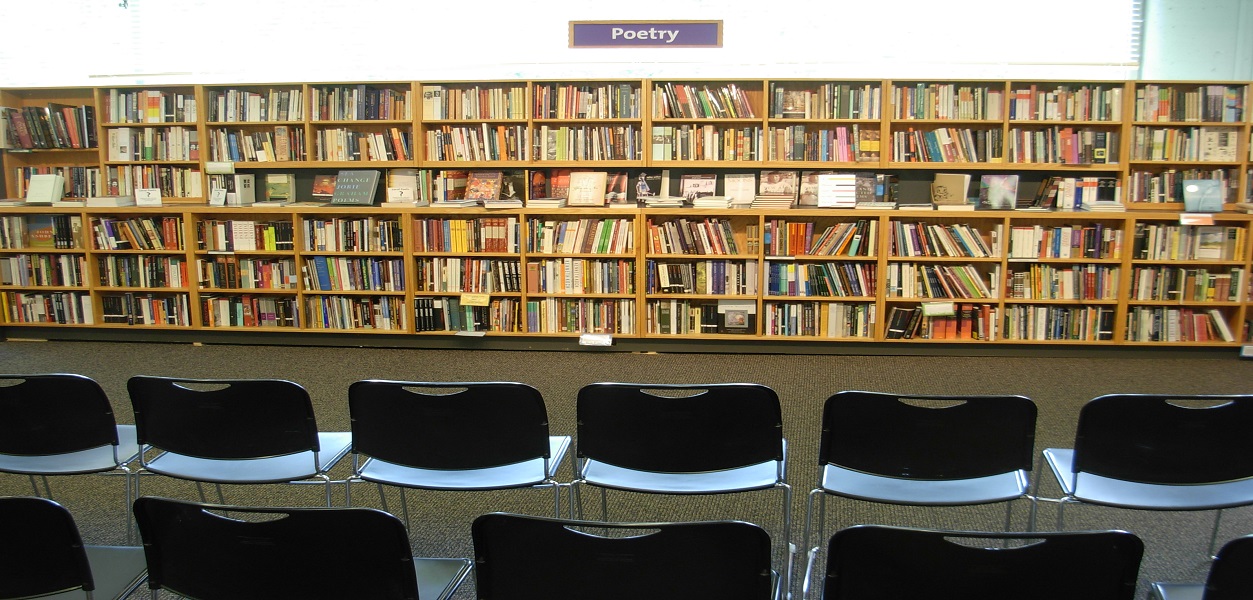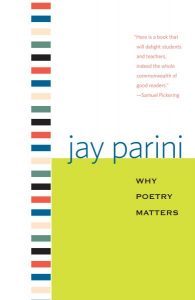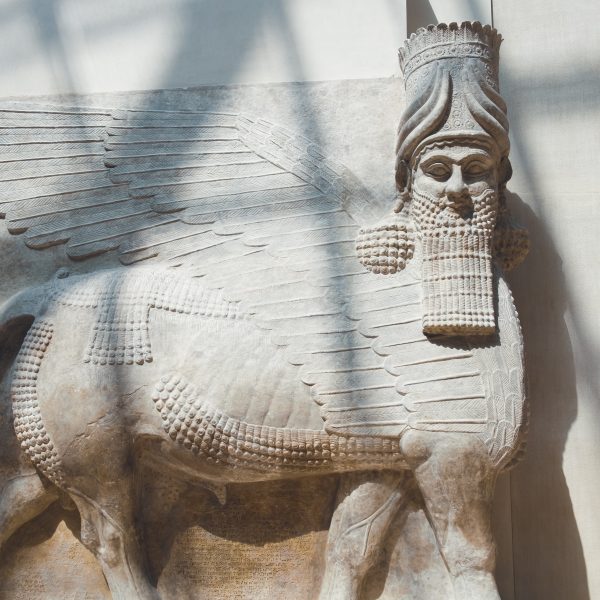Why Poetry Matters
In Why Poetry Matters, the gifted poet, novelist and biographer Jay Parini gives us a deeply felt meditation on poetry. He explores its language and meaning, and its power to open minds and transform lives. Parini ponders Aristotle, Horace, and Longinus, and moves on through Sidney, Wordsworth, Coleridge, Shelley, Eliot, Frost, Stevens, and many more to examine the importance of the poetic voice and the mysteries of the metaphor. Ultimately Parini makes the case that in today’s culture, without poetry, we live only partially, not fully conscious of the possibilities that life affords. That is why poetry matters to all of us. The following is comprised of excerpts from Why Poetry Matters.
Poetry doesn’t matter to most people. That is, most people don’t write it, don’t read it, and don’t have any idea why anybody would spend valuable time doing such a thing. The culture is clamorous, with a television blaring in most living rooms, magazines proliferating, and earphones downloading a great deal of garbage into the heads of millions on the subways and byways of the world. There is little time for concentration, or a space wherein the still, small voice of poetry can be heard. It could be argued, of course, that most people get their poetry in the lyrics of songs. I would, myself, see Bob Dylan as a genuine poet, although even there the tune carries as much meaning as the words, or (at least) helps to position the words. Poetry the kind you read slowly to yourself, on the page—demands more of the listener, the reader.
…
[Poetry] matters because of metaphor, one of the essential forms of thought. Robert Frost suggested (with his usual sly wit) that a person uneducated in the operations of metaphor was not safe in the world, should not even be let out of doors. Poetry, for me, is important because it refines our ability to make comparisons, to understand how far one can ride a metaphor before it breaks down. There are all sorts of implications for this, some of them harshly political, as when politicians actually plunge us into illegal wars because of dangerously inept metaphors, which reflect foolish or ill-considered thinking. I quite agree with Frost that poetry offers a solid form of education, giving its readers access to metaphorical thought, its operations and dynamics.
…
The politics of poetry is a delicate matter. It remains true that a lot of poetry has no overt connection to anything that we might call political, but poets who willfully ignore the world around them risk marginality. Poets have to “read” the world, to respond to it viscerally, and to summon images of that world for readers. Poetry is not sloganeering, and when poets directly confront a particular political crisis they need to do so carefully, even warily. They rarely put forward direct solutions to problems. Instead, they offer a kind of understanding that is distinct, as well as useful, by creating a language adequate to the experience of their readers. In this sense, poetry matters because it can waken us to realities that fall into the realm of the political.
Why X Matters is a series of books that present a concise argument for the continuing relevance of an important person or idea by featuring intriguing pairings of authors with subjects.
Further Reading:



























